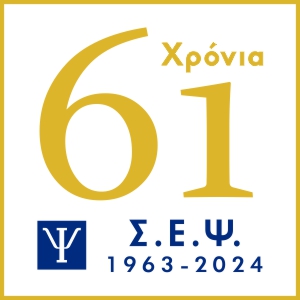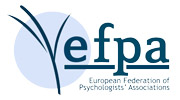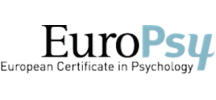Press release
Brussels, November 20, 2014
International Children’s Rights Day 20th November: Protect the childhood!
One fifth of the European population are children. Today, November 20th, marked as International Children’s Rights
day, the European Federation of Psychologists’ Associations (EFPA) encourages its 36 national member associations
to speak up and share psychological knowledge to raise awareness on children’s rights and well-being.
Universal Children’s Day
In 1954, the UN General Assembly recommended that all countries institute a Universal Children’s Day devoted to
promoting the ideals and objectives of the Charter and the welfare of the children of the world. The date 20
November marks the day on which the Assembly adopted the Declaration of the Rights of the Child in 1959, and the
Convention on the Rights of the Child (CRC), in 1989.
The Declaration states that: “The child shall enjoy special protection, and shall be given opportunities and facilities, by
law and by other means, to enable him/her to develop physically, mentally, morally, spiritually and socially in a
healthy and normal manner and in conditions of freedom and dignity. In the enactment of laws for this purpose, the
best interests of the child shall be the paramount consideration”.
In a world with declining mortality rates, rising school attendance and increased awareness of children´s needs, still
too many children are exploited, mistreated and deprived of the most fundamental needs and rights. This year, 2014,
the Task Force on Human Rights of EFPA celebrates the 55th anniversary of the Declaration of the Rights of the Child
and the 25th anniversary of the CRC and takes this day to encourage all member associations to speak up and share
psychological knowledge to raise awareness on children´s rights and well-being.
Healthy development rests on sensitive care and feeling safe. Adverse childhood experiences put development at risk
at all levels: neurobiological, psychological, behavioral and social. Hence, Prof. Robert Roe, EFPA’s President states
that protection of children and promotion of healthy childhoods should be a prime priority to all psychologists.
Roe explains: ‘In a professional psychological context we can contribute to defend and strengthen children’s rights by
actively incorporate the Convention on the rights of the child into psychological practice. Conversely, psychological
knowledge can fill the Convention and the central principle of the best interest of the child with theory, evidence and
substance.’
About EFPA Task Force on Human Rights
In 2013, EFPA established a Task Force on Human Rights to address the ongoing threats to human rights in the world
and to more strongly articulate psychologists’ responsibilities to do what is within our scope and capabilities to
Raise awareness of human rights and (risks of) human rights violations
Prevent human rights violations
Alleviate the effects of human rights violations
Related links:
General comment No. 14 (2013) on the right of the child to have his or her best interests taken as a primary
consideration: http://www2.ohchr.org/English/bodies/crc/docs/GC/CRC_C_GC_14_ENG.pdf
Investing in children: The European child maltreatment prevention action plan 2015-2020:
http://www.euro.who.int/prevent-child-abuse
Note to the editor, not for publication
To be released: November 19, 2014
Further information on this press release can be provided by Kerstin Söderström, member of EFPA Task Force Human
Rights at kerstins(at)online.no or Polli Hagenaars, convenor of Task Force Human Rights at
pollihagenaars(at)hotmail.com
European Federation of Psychologists’ Associations EFPA
Grasmarkt 105/39 – Agora Galerij – B-1000 Brussels – Belgium – www.efpa.eu – headoffice@efpa.eu





